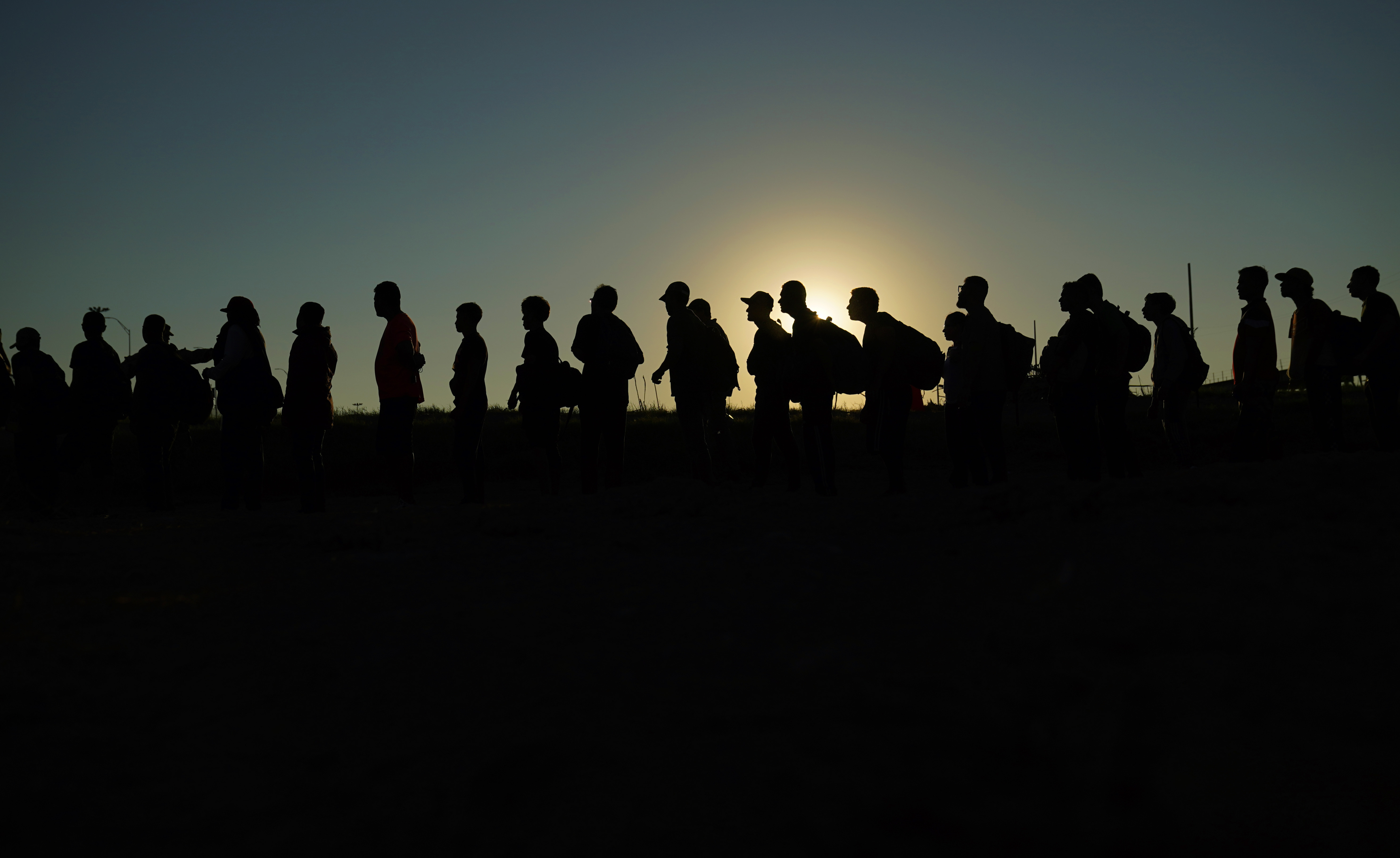A federal appeals court issued a ruling late Tuesday night that will prevent Texas from enforcing its controversial immigration policy known as Senate Bill 4.
The Fifth Circuit United States Court of Appeals ruled 2-1 to deny a motion from the State of Texas for a stay on the decision of whether it can enforce SB4.
Under SB 4, state and local police have the right to question, arrest, and charge undocumented immigrants suspected of crossing the border illegally. Furthermore, the law would require that state judges deport people back to Mexico upon conviction, regardless of their nationality.
Get top local stories in Southern California delivered to you every morning. Sign up for NBC LA's News Headlines newsletter.
The Biden Administration sued the State of Texas shortly after Republican Gov. Greg Abbott signed SB4 into law back in December. It argues that the law is an overreach, and conflicts with the federal government’s authority to enforce immigration laws.
In its decision Tuesday, the court noted that:
“Allowing Texas to detain noncitizens without any input from the Federal Government about whether an arrest is warranted in a particular case...would allow the State to achieve its own immigration policy."
The ruling goes on to note that:
“The Texas removal provisions will significantly conflict with the United States' authority to select the country to which noncitizens will be removed. A large number of noncitizens who crossed into Texas from Mexico are not citizens or residents of Mexico. Nevertheless, under Texas law they would be removed to Mexico. The United States would have no voice in the matter."
Earlier this month, Texas' plans were again put on hold after setting off uncertainty along the border and anger from Mexico flared during a brief few hours that the law was allowed to take effect.
A late-night order on March 19 from an Appeals Court panel temporarily put SB4 on hold — again. Earlier in the day, the U.S. Supreme Court had cleared the way for the strict immigration law, dealing a victory to Republican Gov. Greg Abbott and encouraging GOP lawmakers in other states that are pushing for similar measures.
But later in a 2-1 order, an appeals court panel continued the legal seesaw surrounding the Texas law, again putting it on pause ahead of oral arguments that were scheduled for March 20.
During the short time the law was in effect Tuesday, Texas authorities did not announce that any arrests had been made or say whether it was being actively enforced. Along the border in Kinney County, Sheriff Brad Coe embraced the arrest powers but said deputies would need probable cause.
“It is unlikely that observers will see an overnight change,” said Coe, whose county covers a stretch of border near Del Rio that until recently had been the busiest corridor for illegal crossings but has quieted considerably.
Arrests for illegal crossings fell by half in January from a record-high of 250,000 in December, with sharp declines in Texas. Arrests in the Border Patrol's Del Rio sector, the focus of Abbott's enforcement, fell 76% from December. Rio Grande Valley, the busiest corridor for illegal crossings for much of the last decade, recorded its fewest arrests since June 2020.
Tucson, Arizona, has been the busiest corridor in recent months, followed by San Diego in January, but reasons for sudden shifts are often complicated and are dictated by smuggling organizations.
When President Joe Biden visited the Rio Grande Valley for his second trip to the border as president last month, administration officials credited Mexico for heightened enforcement on that part of the border for the drop in arrests. They said conditions were more challenging for Mexican law enforcement in Sonora, the state that lies south of Arizona.



